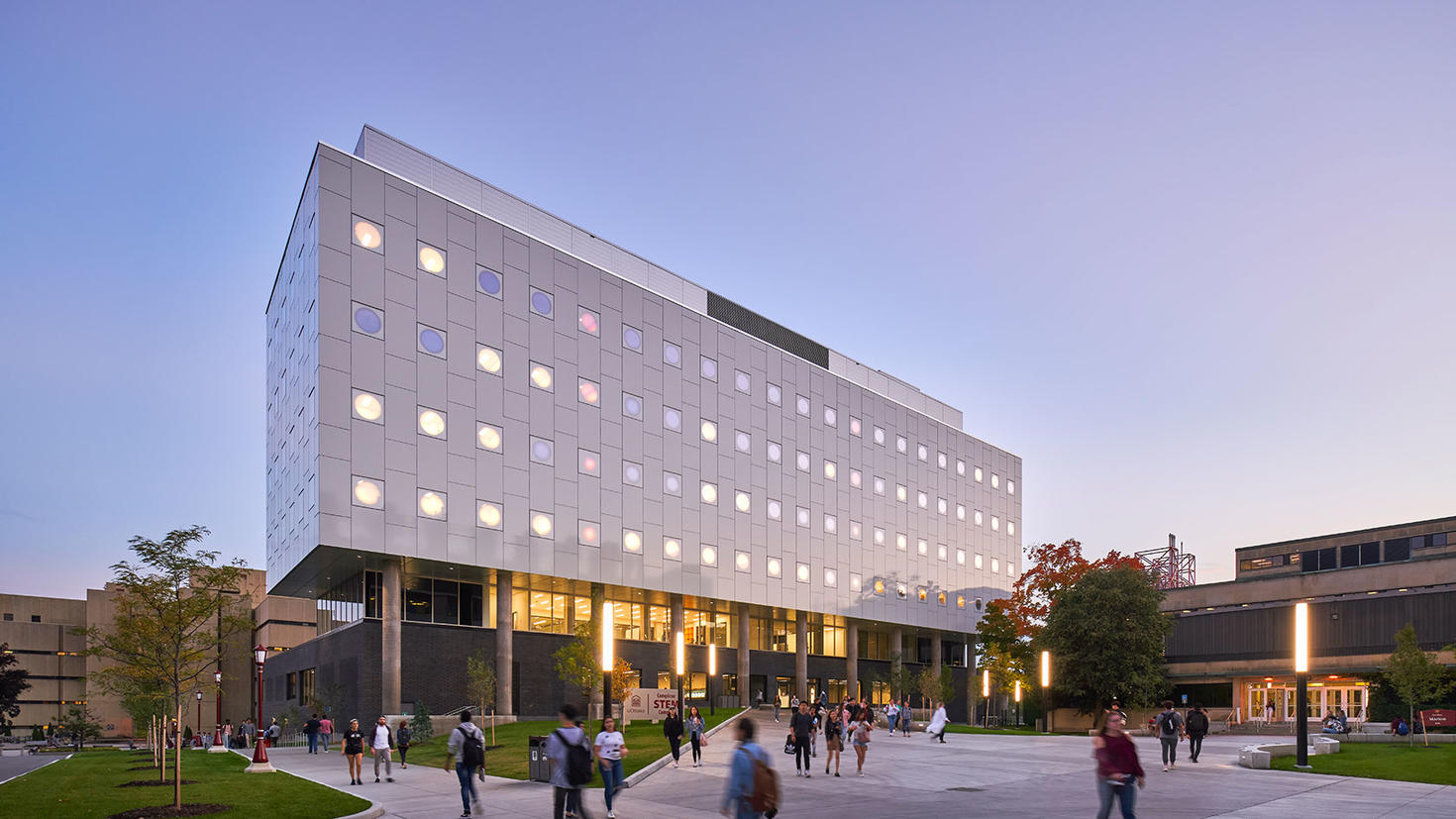In 2018, the University opened its uOttawa Kanata North campus, a satellite campus located in the heart of the tech park, to position students and faculty closer to the heart of tech innovation, recognizing the incredible opportunities and value created by fostering strong connections between academia and industry.
As part of its 2018 strategic priorities planning, the University identified four areas of research excellence, relevance and impact – including Shaping our Digital World – to take that commitment to the next level by becoming an innovation leader and go-to partner in digital transformation.
By developing partnerships with global tech leaders as well as public sector partners, and guided by its institutional strategic plan Transformation 2030, uOttawa is aiming to create the University of tomorrow – a campus that will not only provide cutting edge research, transformative learning opportunities and access to world-class researchers, but also will help shape the digital world for both students and community.
“As companies navigate their digital transformation journey, uOttawa has established itself as a key partner in supporting research, innovation, skills development, and accessing the next generation of talent,” said Sean Geddes, director, innovation and partnerships at uOttawa’s Kanata North campus.
Leading the way in 5G connectivity
At the centre of uOttawa’s digital transformation initiative is the University’s commitment to becoming one of the most connected campuses in Canada.
Currently, uOttawa is one of a handful of post-secondary institutions working with a leading national 5G carrier to create a fully connected 5G campus. The $6 million partnership with TELUS will see uOttawa campuses outfitted with 5G infrastructure.
In addition to the 5G deployment on its campuses, uOttawa is also developing two 5G-enabled living laboratories located on its downtown campus. With access to 5G and state-of-the-art technologies, these living labs will allow students and researchers to innovate in fields such as edge computing, smart-grid applications, artificial intelligence, learning technologies and more.
“Bringing together numerous stakeholders from our community, we have begun to imagine what a 5G campus could mean for uOttawa,” said Geddes. “How could it impact research, innovation, and learning, or how the University operates? It’s something we are really excited about.”
Building on years of excellence in quantum research and innovation
While quantum technology isn’t new to uOttawa – in fact they have been a leader in this space for years – the University recently consolidated its related centres, state-of-the-art infrastructure and efforts into a single institute: the Nexus for Quantum Technologies (NexQT).
Bringing together over 80 researchers and 300 students and postdoctoral fellows, the institute is home to one of three Max Planck centres in the Americas, the Joint Centre for Extreme Photonics (JCEP) established in collaboration with National Research Council (NRC), and state-of-the-art infrastructure like the NanoFab Facility, which enables the fabrication of devices and novel materials for use in quantum science.
As a testament to uOttawa’s leadership in the field of quantum research and innovation, the University was selected to lead three of eight national networks, supported by funding through the National Quantum Strategy, in the fields of quantum information and cryptography, quantum sensing and imaging, and quantum materials.
Building on this momentum, uOttawa was also selected to lead three national training programs to support the development of the next generation of talent working in quantum-related fields. Two of the programs focus on training in quantum materials, while one focuses on autonomous vehicle technology, integrating training in quantum sensing and encryption, which will be led out of the Smart Connect Vehicle Innovation Centre at uOttawa’s Kanata North campus.
A hub for cybersecurity and cybersafety
The third major area of focus for the University is cybersecurity. Similar to its approach to quantum technologies, uOttawa has brought together its numerous initiatives in cybersecurity research, innovation, and skills development under one umbrella: the Cyber Hub.
The Cyber Hub brings together world-class researchers from seven different faculties, state-of-the-art research and training facilities, and extensive programing to support professional skills development in cybersecurity and cybersafety.
Quite unique to uOttawa, the Cyber Hub also hosts the University’s Security Operations Centres (SOC) to enable novel training opportunities, since it will be close to the immersive cyber range facility within the Cyber Hub that will officially open next month.
As the University continues its path toward digital transformation, each of these areas will play an important role in uOttawa’s ability to lead and support research, innovation, and skills development in the field, said Geddes.
This article was originally published in the Ottawa Business Journal.


